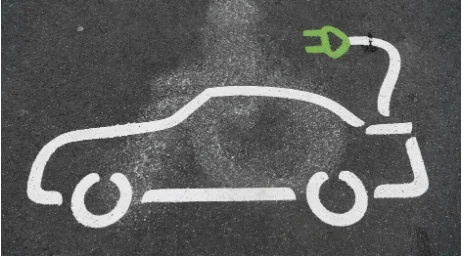Er der noget, politikerne kan enes om i disse år, er det udskiftningen af benzin- og dieseldrevne biler med el-biler, men det er i virkeligheden en meget dyr fornøjelse for samfundet, og det gavner de velstående og vender den tunge ende nedad, hedder det i en analyse fra Deutsche Bank om konsekvenserne i Tyskland. Den offentlige støtte til el-bilerne vil beløbe sig til 15 milliarder euro over de næste 12 år. På kort sigt vil el-bilerne ikke gavne klimaet særlig meget. Lovgivningen gavner ikke miljøet særlig meget, og den er ikke effektiv, når man ser på den økonomiske stimulans. Den offentlige støtte gavner især velstående. I de nye økonomier vil el-bilerne kun udbredes begrænset, da el-produktionen er for lille til at klare behovet, og fordi der bruges meget bio-brændstof. Alt i alt har el-biler – med de nuværende regler – en social slagside, både på mikroniveau og globalt.
Uddrag fra Deutsche Bank:
Government pays a lot to bring
e-mobility forward
Demand for electric vehicles has recently surged. Two key drivers are behind this gain in market share: Tight caps on vehicle CO2 emissions combined with the classification of electric cars as zero-emission vehicles and subsidies to buyers of electric cars.
The transition to e-mobility helps to protect the climate. The contribution to climate protection will rise over time due to technological progress and scale effects in production.
However, it is small and expensive for now. For every one million electric cars sold in Germany in the next few years, the total fiscal effect amounts to at least EUR 15 bn over the twelve years after the sale. Carbon abatement costs may amount to more than EUR 1,000 per ton. The current regulatory regime is obviously neither efficient from an economic vantage point nor effective in environmental protection terms.
– Demand for electric vehicles has recently surged. In H1 2021, more than
22% of all newly registered cars in Germany were battery-electric or plug-in
hybrid electric vehicles (BEVs or PHEVs, respectively). This share is
considerably above the EU average.
– Two key drivers are behind this gain in market share. First, the EU has set
tight caps on vehicle carbon emissions, and electric cars are classified as
zero-emission vehicles by the regulatory authorities. This combination
boosts supply. Second, the government offers generous subsidies to
buyers of electric cars. So far, electric cars have not gained significant
market shares without subsidies in any major car market.
– In addition to direct purchase grants, owners of electric cars enjoy
several fiscal benefits, for example in the form of lower taxes (energy or
mineral oil taxes vs electricity taxes, vehicle taxes, CO2 levy on petrol and
diesel, VAT). The tax effect is even larger for company cars.
– The total fiscal effect of replacing a combustion-engine upper mid-range
car by an equivalent BEV amounts to more than EUR 20,000 during the
car’s lifetime (the sum of direct subsidies and tax revenue losses). For every
one million electric cars sold in Germany in the next few years, the total
fiscal effect amounts to at least EUR 15 bn over the twelve years after the
sale.
– The transition to e-mobility helps to protect the climate. While e-vehicles’
contribution to climate protection will rise over time due to technological
progress and scale effects in production, it is small and expensive for
now. Carbon abatement costs may amount to more than EUR 1,000 per ton,
whereas carbon emission certificates in the EU ETS currently only cost just
above EUR 50 per ton. The current regulatory regime is neither efficient
from an economic vantage point nor effective in environmental protection
terms.
– A closer look at the fiscal effects also reveals major social imbalances.
Right now, higher-income households benefit most from the subsidies,
whereas lower-income car owners pay for a relatively large share of the
subsidies (at least in proportion to their incomes). If subsidies are
gradually reduced in the future, demand for electric cars in general may dip
and low-income households will be punished for not being able to afford a
subsidised electric vehicle in time.
– Many emerging markets are unlikely to set in motion a broad-based
transition to e-mobility in the coming years because they cannot produce
the necessary amounts of electricity or because they use (traditional)
biofuels instead. Alternative low-carbon fuels will be needed to reduce the
carbon emissions of the transportation sector in these countries, too.











